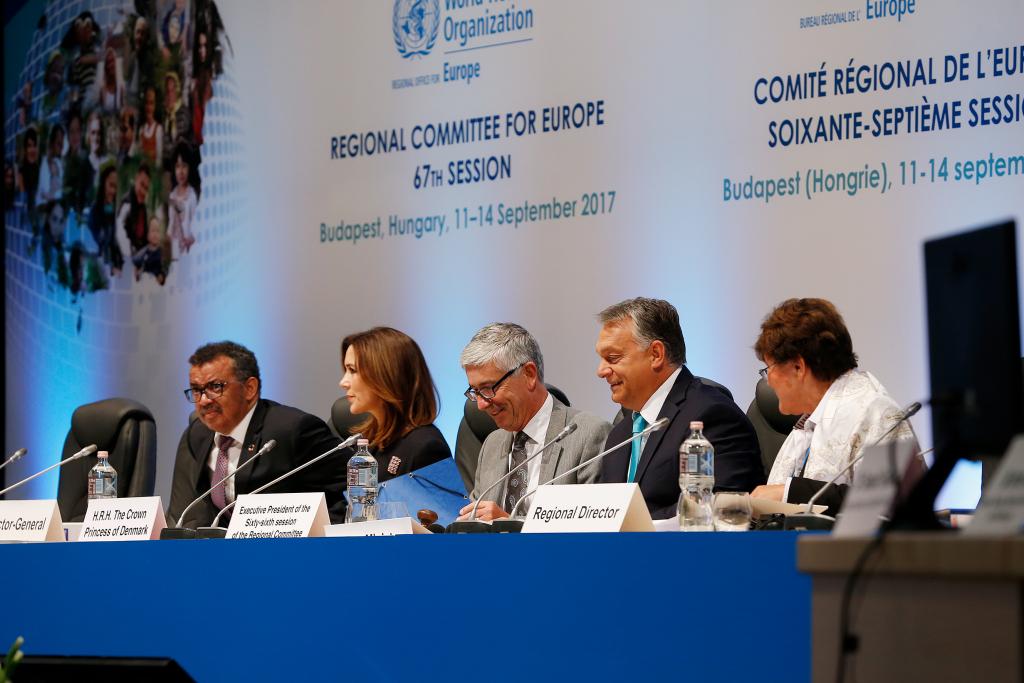The 67th session of the WHO Regional Committee for Europe met in Budapest from 11 to 14 September. The strategic importance of health both in the framework of the 2030 Agenda for Sustainable Development, and more generally for the social stability of the region was strongly underscored by the participation of two prime ministers, from Hungary and Greece respectively as well as by the Deputy Prime Ministers of Malta and Turkey. European Regional Committees are usually attended at a senior technical level, and not by ministers, let aloneby prime ministers.
Another interesting political dimension of the meeting was the presence and active participation of the new WHO Director-General Dr. Tedros. There was a clear interest in the room in better understanding his personality and engagement with a region populated by politically and financially important countries. Dr Tedros did not disappoint expectations: he is proposing to move up by one year the renewal of WHO’s General Programme of Work that should reflect his strategic priorities. He received broad support for this initiative by European countries. Unexpectedly, he also made an impassioned plea for reforming WHO’s Executive Board and giving it executive powers that, despite its title, the Board has never used. This will be a more controversial proposal given the interest of many countries in the current status quo, and the support from the European Region will be decisive if his plan is to have a chance.
The shift from a north-to-south perspective to a global dimension in public health was clearly shown by the debate on access to medicines. The Netherlands first placed this problem squarely in the EU’s agenda during its presidency of the Union, and it has become clear that the high prices of medicines, especially those aimed at chronic non-communicable diseases, are causing unacceptable challenges to the health systems also in the most developed countries. While there was a consensus at the scope of the problem, there were marked differences as to the way forward, with countries hosting major pharmaceutical companies (e.g. France, Germany and Switzerland) reluctant to weaken patent protection and stressing the need for better economic analyses or pricing negotiations with the industry. This discussion also confirmed the interest of small countries to pool procurement in order to negotiate better terms. The Valletta Declaration and the Benelux initiative – which other countries such as Austria are looking to join – were mentioned as examples.
The European Region is traditionally the most interested in its own governance among the WHO regions, with a constant attempt to rationalise decision-making processes and to aim at best practices to offer as blueprints for the Organization as a whole. During the 67th session, the Regional Committee adopted a process to deal with the outcomes of the many ministerial conferences held in the region which do not necessarily align with the agenda of the Regional Committee. Such conferences adopt important policy decisions on health matters, and run the risk of generating incoherence, or even competition with the role that the Regional Committee should play in that regard.
Further information
67th session of the WHO Regional Committee for Europe
Written by Gian Luca Burci, Senior Fellow at the Global Health Centre and Adjunct Professor at the Graduate Institute
Photo credit: WHO/Franz Henriksen


